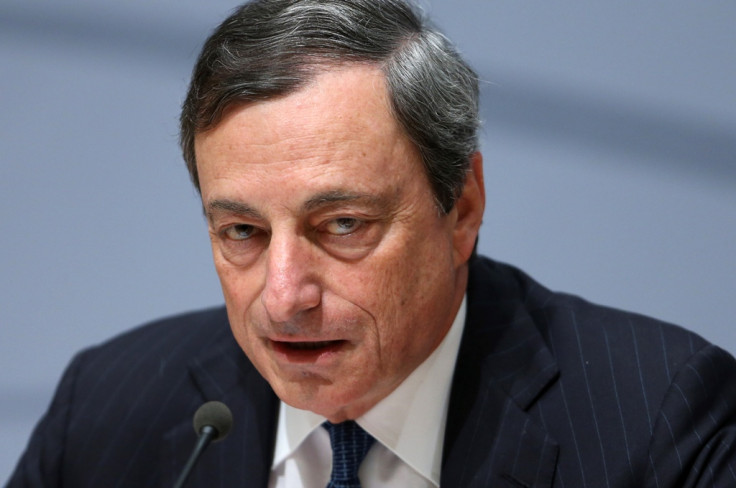Central banks watch: ECB, BoC, BoJ, Brazil, Turkey and Nigeria to set rates, BoE to release minutes

The European Central Bank (ECB) will be in focus next week as it is widely expected to expand its bond buying programme at the forthcoming meeting.
Other central banks scheduled to set rates are the Bank of Japan (BoJ), Bank of Canada (BoC), Brazil, Turkey and Nigeria while the Bank of England minutes will also be keenly watched.
The latest remarks by ECB chief Mario Draghi have been signalling the need for additional stimulus for the eurozone and the latest inflation and growth numbers have underpinned that view.
Even central banks elsewhere have started to prepare themselves for the eventual ECB easing that can strengthen the dollar broadly and affect currencies and capital flows of their economies.
The euro has already fallen to an 11-year low against the greenback, weighed further down by the Swiss National Bank's decision to abandon a three-year old EUR/CHF floor.
The ECB review is scheduled on 22 January. This will be its first meeting after the frequency of rate setting meetings has been reset at six-weekly instead of monthly until last year. This time the rate decision is at 12:45 GMT followed by the monetary policy statement and the ECB press meet at 13:30 GMT.
Other G10 decisions
Japan and Canada are unlikely to alter rates this time. The BoC has been keeping the benchmark overnight rate at 1% since September 2010 while the BoJ has been depending on quantitative easing as a tool to ease monetary conditions in Japan.
Still, policy statements from these countries will be watched for any indications regarding the path of interest rates and generally about inflation and growth of the respective economies.
Both the BoJ and the BoC are scheduled to make the rate announcements on Wednesday.
EM decisions
The central banks of Brazil, Turkey and Nigeria are due to decide rates this week. Turkey and Nigeria will set rates on Tuesday and Brazil on Wednesday.
In Turkey, the inflation rate has fallen to a multi-month low but the core inflation rate is still holding near 9%, little changed from the yearly highs. Some market participants expect a cut of 25 basis points in the benchmark interest rate by the TCMB from 8.25% currently.
Nigeria, at its November meeting, had devalued its currency naira and hiked the main interest rate by 100 basis points to 13% citing inflationary pressures and growth challenges in the wake of the big fall in crude oil.
For Nigeria, Africa's largest economy, petroleum exports are the main source of revenues. The USD/NGN rallied to 178.80 from 165 in November and is now holding near a record high of 187 touched in December.
Brazil is on a tightening cycle. It has hiked the Selic rate by 125 basis points in 2014 taking it to 11.75% by December.
Persistent inflation and downside risks to growth and currency are expected to keep upside pressures on rates in Brazil, so another hike is not ruled out at the 21 January review.
BoE Minutes
The nine-member Monetary Policy Committee (MPC) of the BoE has been divided on rate decisions since August with two demanding a hike in the bank rate and the rest opting to wait for a better time for such a move.
With data of late continuing to showcase downside pressures on inflation and growth in the UK, the vote split could disappear going forward, and that has made the BoE minutes crucial these days.
The UK's scenario is compared to that of the US where labour market and other growth indicators have been largely on the hawkish side, deepening the pound-dollar divergence, and therefore the impact of a change of the BoE MPC vote split will be visible on the GBP/USD.
The sterling fell to a 17-month low of 1.5034 against the greenback on 8 January and has been keeping slightly off the lows since then. Another downward push can easily take the pair to multi-year lows immediately so the market will be keen to scrutinise the forthcoming minutes.
© Copyright IBTimes 2025. All rights reserved.






















